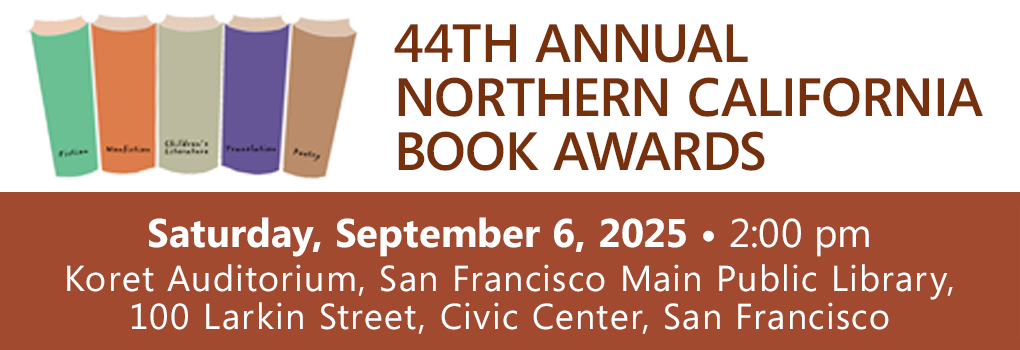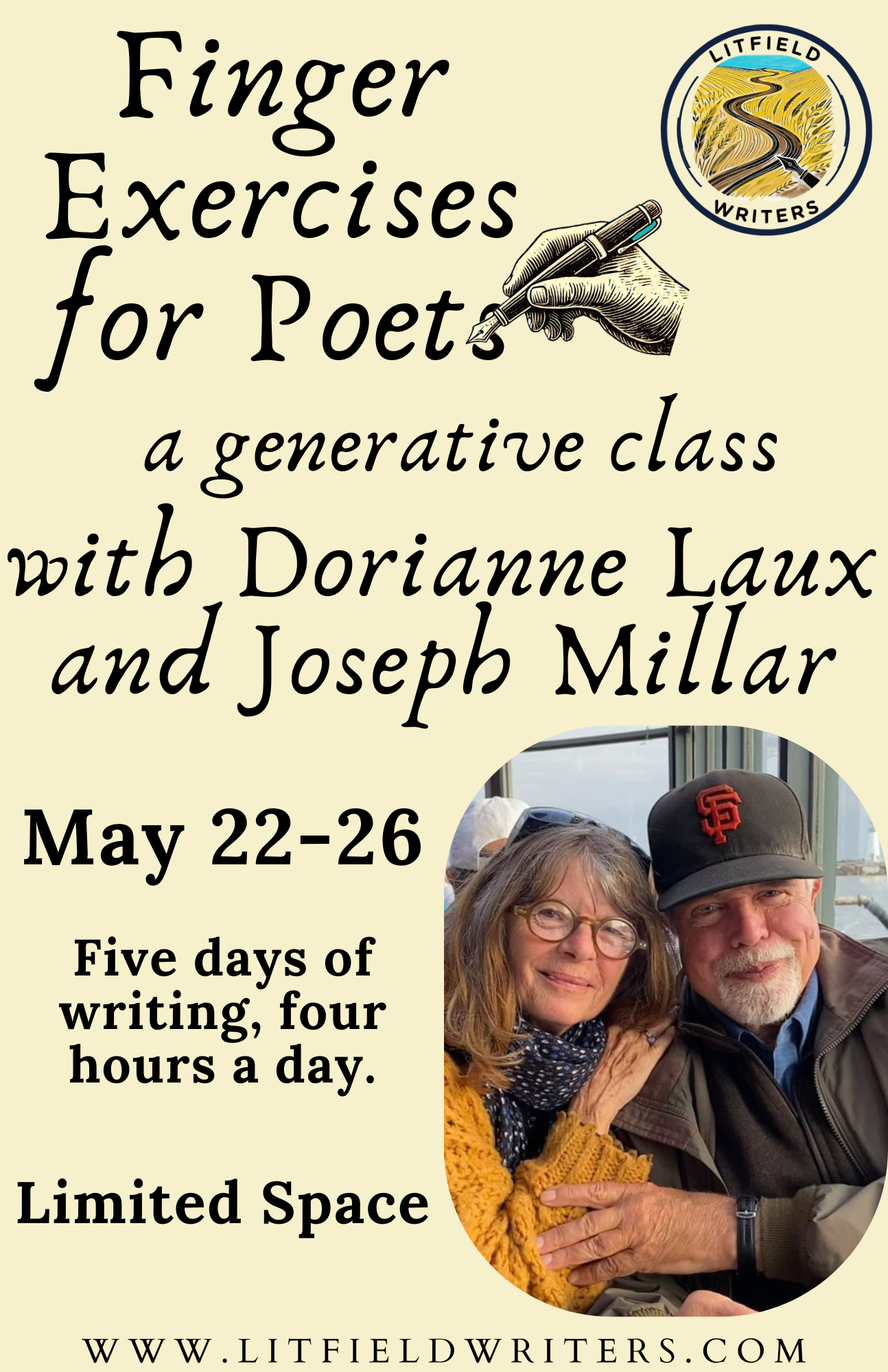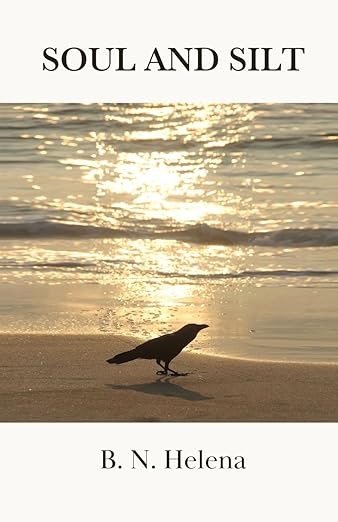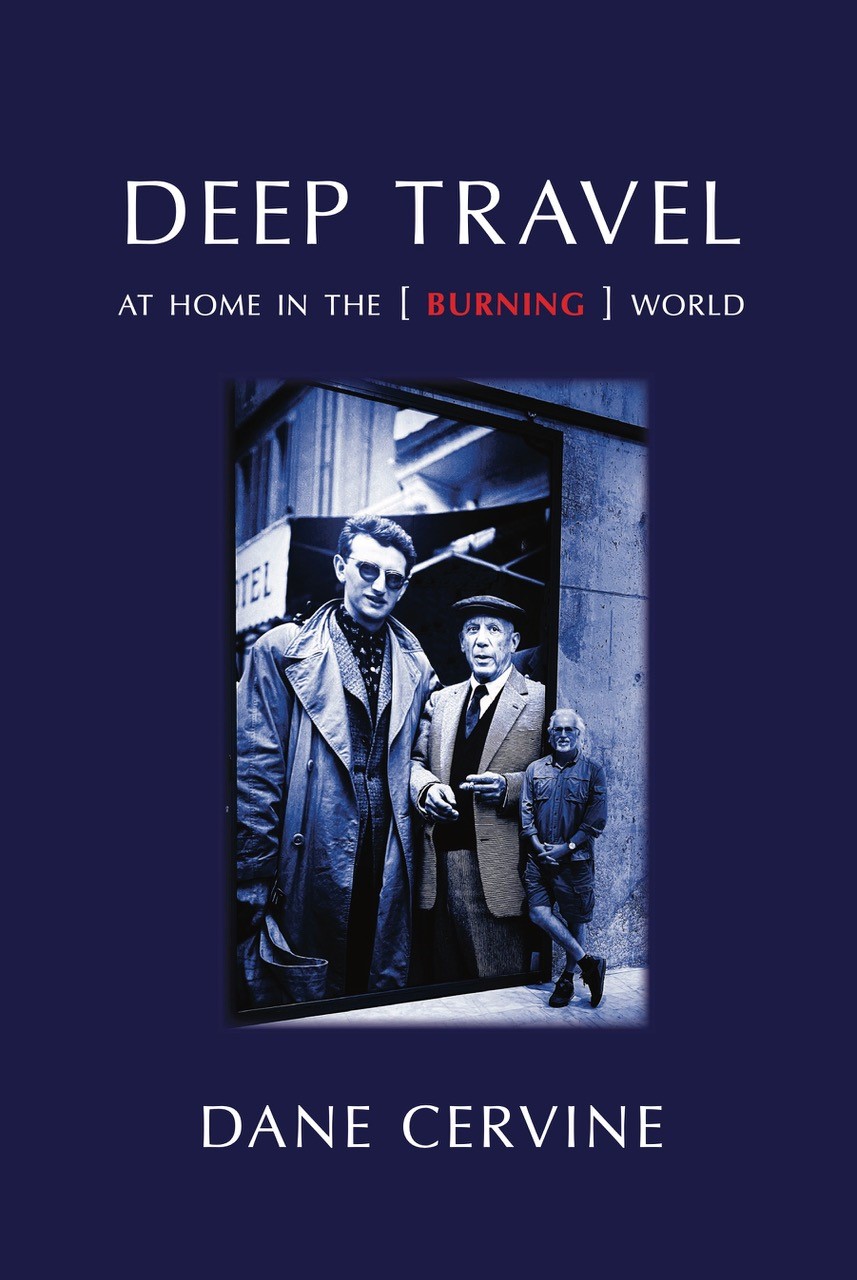
Desperate Others
by Richard Silberg
Central American Book of the Dead/Libro centroamericano de los muertos, by Balam Rodrigo, translated from the Spanish by Dan Bellm, bilingual edition, FlowerSong Press, McAllen, Texas, 2023, $17.00, 146 pages, www.flowersongpress.com
IN THESE DAYS when migrants to our southern border are being called a threat, economically, psychosocially, politically, when these desperate others create an acute problem for our nation to solve, it would perhaps behoove us to gain some sense of who these migrants actually are. Balam Rodrigo's book, then, becomes a kind of in-shape to our out-shape. And when that book is a stark, passionate work of poetry, winner of the 2018 Aguascalientes Prize, Mexico's highest poetry award, it heats up, starts to glow, to demand our attention.
Central American Book of the Dead is a hive of voices. And it's Rodrigo's triggering inspiration that they be voices of the dead, virtually all of them migrants who've met a violent fate on their hopeful journey north through Mexico toward the United States. They hang in uneasy limbo above their corpses and tell us their stories, loves, hates, longings, memories, curses. All migrant voices, that is, except one. The book is framed and interspersed with the voice of Fray Bartolomé de las Casas, 1484-1566, Dominican friar and first resident Bishop of Chiapas, a social reformer who became known as 'Protector of the Indians'. He was also a voluminous writer whose most famous piece is A Brief Account of the Destruction of the Indies. That's what Rodrigo quotes from. But, as he says in an introductory note, he's making additions and updates to the text, indicated by italics, while working to preserve the bishop's characteristic manner and syntax. Rodrigo is overwriting him, as he says in the manner of a palimpsest, up out of the sixteenth century and reinstalling him in ours as moral judge and lamenter of the present destruction.
The bishop, though, is definitely not a poet. Here, in Dan Bellm's English and with Rodrigo's italics, is how he writes: "I say in truth that if all the evil acts committed by these genocidal killers, most especially by those who have murdered migrants native to the Kingdom of Guatimala—so many crimes, ravages, deaths, and banishments of peoples from their lands, so many savage acts of injustice to strike horror not only in this century but in those to come—were to be expressed and gathered together, they would make for a very large book." (page 23) Rodrigo has written the book, flesh, music, and suffering, that de las Casas calls for.
His first poem "Sermon of the Migrant (Beneath a Ceiba Tree)" reaches, movingly, up out of the human, begins with the highest:
And God too was in exile, migrating without end;
he traveled, riding The Beast, and had not been crucified
but was maimed in the arms and the legs, mute, and ashen all over
as he fell in the shape of a cross from the highest heavens,
thrown down by delinquents from the black clouds of the
train, from the endless labyrinth of gondolas and boxcars,
and I saw plainly how his ribs had been pierced
by the curved spears of smugglers, the gun butts of cops,
the bayonets of soldiers, the narcos' extorting
tongues, and his suffering was as great
as that of all the migrants put together, which is to say,
it was like anybody's pain…
This poem maps the journey that the book is to travel and retravel riding The Beast, which is the train up through Mexico towards the United States, and the sermon of the title ends it. Asked by "his disciple" beneath the ceiba tree what should they do if they're arrested and deported, God answers: "…You must migrate / seventy / times seven, and if they ask you for dollars and deport you / again, / give them all you have, your garment, your backpack, your / water bottle, your shoes, / and shake the dust from your feet, and migrate once more / from Central America and from Mexico without turning, ever / again, to look back…"
And, as if in obeisance to this suffering God, migrant after migrant begin to tell their stories:
I came down from the Sierra of the Cuchumatanes,
from the blue-leaved forests of the Quiché nation,
from the house where fog and quetzals dwell,
until I reached the shore of the Río Suchiate, near Ayutla.
I left behind my village's smell of burnt bodies,
the howling military stench of scorched earth,
napalm and shrapnel gnawing at our bones and feet,
(page 25)
The tale goes on about walking barefoot to the "far side of the underworld" to heal bones and hunger. But the migrant never arrives. He's waylaid with two blows of a machete to steal his money and the few ears of corn from his pack. "Two Gallo beer bottle caps they set in my eyes," he says. And of the rumored ghost appearing by the banks of the river "…I know that I am / and have been and will be the only begotten son of the dead, / guard of my own shadow, black lightning bolt of my people…"
Every day I see the ranks of the dead go by,
the ones who migrate to Estados Unidos without reaching it:
herds of bodies in purgatory, sad human shapes,
clay between the sleepless fingers of God.
(page 27)
After a two-line poem that we'll return to when we come to consider Dan Bellm's translation, the next migrant voice is a woman's. She tells us that, "hounded by that mass killer Efraín Ríos Montt," her parents had fled Guatemala in 1982 and settled in the rainforest in Chiapas, Mexico where she was born a member of the Ixil, an indigenous Mayan people. They returned to Guatemala after Montt was deposed, but the peace accord, she tells us, didn't negotiate hunger, no corn, even to plant. So, when she came of age, she decided to come down out of the mountains to work as a cook in a house in Tapachula.
They promised good pay, but when I got there
my girl cousins tricked me, sold me like baggage
to a lady who ran a brothel on the border.
They made me open my legs and shut my mouth;
needless to say, they all beat me up.
Then I ran off with Daniel, a taxi driver from Tapachula,
a drug addict and a drunk who kicked me to death
when he found out I was pregnant.
He dumped my body in the river, the putrid Coatán,
along with the baby boy.
(page 33)
Buried in a cemetery called the Garden, "nameless and lost" among other nameless dead, she tells us that the heavy earth doesn't smother her so much as "the panting, filthy bodies" she put up with when she was alive. She tells us her mother searches for her in caravans bearing a picture on her chest of her daughter "dressed up for a party."
But my cousins are cursed because they're still alive,
split open by the sweating, stiff machetes of flesh
of drivers and dockworkers from the San Juan market.
God willing, my mother will return to San Gaspar Chajul
and sleep well beneath our incandescent sun,
the corn sun newly born from death, like me.
(page 35)
Let's listen to two more voices for some sense of the variety and flavor of Rodrigo's book.
I'm 11 years old, now and forever.
I was born in Barrio Fendesal in Soyapango,
not far from San Salvador, but for me
nobody ever was my savior.
My father got killed by pandilleros
from MS-13—
they stole a soda and a quarter off him, that was all he had,
he made three dollars a day at the garbage dump.
I helped him out pulling the cart,
and sometimes we found food
in the trash bags that came from Metrocentro
and went home happy.
page 45)
He tells us that he ran away from Soyapango with his street buddy Pablo to try to make it as pro soccer players in the U.S. "where they have more dollars than gangs." Two days to the Mexican border where they hopped The Beast.
Before we reached Arriaga I fell asleep,
and I'm still falling.
Forever, just like El Mágico, I'll wear
an 11 tattooed on my back,
maybe for how many bags they put
my torn-up body in,
maybe because I was wearing the Selecta shirt
with that very number, or maybe because death's got
that endless 11 of train tracks carved on its gut.
(page 47)
El Mágico is a soccer great, and the poem closes with a dream that Pablo tells him about Roque Dalton rising up with El Mágico by his side dribbling up on Death, kicking the heads of Salvadoran pandilleros, and scoring a goal between Death's legs in a packed stadium where the crowd is holding a gigantic wake for all the dead migrants.
I know that God plays futbol up in heaven,
but I don't want to be on his team just yet.
I'll stay right here on the bench, waiting
for my friend Pablo and El Mágico González
to call me with a smile
to play a match.
(page 47)
The last voice I want to tune in to belongs to one of the very killers who, otherwise anonymously, lurk throughout Rodrigo's book:
…My name got known in El Salvador
once I wrote it in blood on the prison walls of Cojutepeque:
14 years old and 20 dead bodies, all of them with their guts
ripped out by my machete or my gun. Three marks on their cheek…
(page 53)
He goes on to tell us about his career, joining up with various gangs or cartels:
…I watched men twist in pain
and women beg me not to mount them anymore; after cutting them up I'd play at
putting the bodies back together. I always got the parts confused:
black head on white trunk. It made me laugh…
(page 53)
He's also a migrant of sorts, his criminal activities having led him from El Salvador up into Mexico, and, like the other voices, he's dead. He speaks of his murder with the same savage lack of emotion. "…Since / forever I've slept like a baby: my Achille's heel…" Dreaming of beer and food, a beach in La Libertad, the black sand lapping at his feet, he leaves his 'piece' unguarded:
and some other Zeta faggot jealous over women popped me
.
one Or was it two, to leave another pair of holes where my eyes
had been… (page 55)
Central American Book of the Dead isn't standard lyric poetry. Rodrigo has written his book more like a novelist, speaking not as himself in lyric soliloquy, but in the varied voices of his cast of characters, and the poetry is, so to speak, theirs. But, reading this bilingual edition, there's yet another voice to be considered in the mix, and that's the translator's. So, as promised, I'd like to look briefly at Dan Bellm's translation and what we could call his translation strategy.
Let's start with the two-line poem I mentioned above:
Habla Bal'am K'itze' (Popul Wuj)
¿Sólo migras y narcos.
habrá bajo los bejucos?
The literal translation of that would be 'will there only be narcos and migras under the bejucos?' But Bellm gives:
Deep forest
of twisting vines:
no guardian spirits
to guide our steps?
Only narcos
and border cops?
Instead of being strictly faithful to the Spanish, Bellm writes a reader friendly English version. The Popul Vuh is a Mayan religious book, and so those "guardian spirits" are implied in the Spanish poem for knowledgeable readers. Also 'bejuco' isn't in my Spanish dictionary. It must be either an indigenous word or perhaps specific to Central American Spanish. Bellm helps us out with "Deep forest / of twisting vines."
In another example the poem in Spanish begins:
Quise ser cantante de corridos,
pero ya no canto, migro sin descanso.
(page 48)
Literally: 'I wanted to be a singer of corridos / but now I don't sing, I migrate without rest.' But Bellm translates this:
I wanted to be a cantante,
a singer of corridos,
but my singing's in the past—
now I wander without rest.
Quite faithful to Rodrigo's meaning, but making a small rhyming poem in English as this would-be cantante might have wished.
One last example. The poem "Hablan los que migran por México" contains the two couplets:
El cíclope de acero repta por la espalda
de una patria muerta.
La corpulencia de La Bestia contrasta
con la anorexia de las sombras:
(page 112)
The second couplet literally would be: 'The corpulence of The Beast contrasts/ with the anorexia of the shadows.' But Bellm contracts the two to a triplet, literally translating the first, but changing the second to a swift phrase:
The steel Cyclops crawls over the back
of a dead country. Fat Beast,
starving shadows:
While I'd hesitate to say Bellm's version has improved the original, we could grant a lazy irony to Rodrigo's slow couplet. Bellm's "Fat Beast, / starving shadows" is certainly striking in English, hitting hard and fast while remaining faithful to Rodrigo's meaning.
Dan Bellm is a poet himself, probably essential if you want to translate poetry, and his skill shines throughout this book. He's always faithful to Rodrigo's meaning, but as we can see in these few examples, he's not a slave to the Spanish text. Rather, he's an agile dancer between the Spanish and the English, loving both. I hope the English only reader can feel Rodrigo's power that Bellm has brought across.
Central American Book of the Dead is raw, elemental, panoramic. Its many voices speak of the seismic force of inequality, of poverty yearning towards riches, of lives trying to live. We in America need to read it, to understand, to have compassion. ![]()
Richard Silberg is Associate Editor of Poetry Flash. His poetry collections include The Horses: New and Selected Poems and Deconstruction of the Blues, recipient of the PEN Oakland-Josephine Miles Literary Award 2006. He's also the author of Reading the Sphere: A Geography of Contemporary Poetry. He co-translated, with Clare You, The Three Way Tavern, poems by Ko Un, winner of the Northern California Book Award in Translation, and other volumes of Korean poetry.
— posted October 2024







































 So Far So Good: Final Poems, 2014-2018
So Far So Good: Final Poems, 2014-2018  Abandoned Poems
Abandoned Poems 















 Mississippi
Mississippi 



















































































